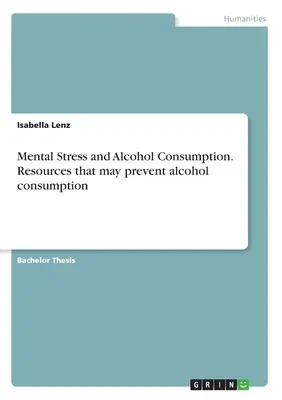Bachelor Thesis from the year 2019 in the subject Psychology -
Industrial and organizational psychology, grade: 1,0, University of
Salzburg (Department of Psychology), language: English, abstract: Based
on the recent changes in the working world and the associated increase
in psychological stress at work, this thesis examines whether high
mental stress at workplace leads to an elevated alcohol consumption.
Furthermore, it investigates whether job and personal resources like
social support at work, organizational identification as well as an
internal locus of control can buffer this relationship. This was
addressed by examining all variables with corresponding questionnaires
in an online-survey (N = 290). The results indicated that there was no
relationship between mental stress at workplace and alcohol consumption
and thus no predictive power. Moreover, the moderation hypotheses could
not be confirmed. Neither social support, nor organizational
identification, nor an internal locus of control had a significant
impact on the relationship between mental stress at workplace and
alcohol consumption. Nowadays, especially in western nations it can be
observed that the term "stress" became an increasingly frequent topic
that seems to be almost inevitable for everyone. In a survey conducted
by the Techniker Krankenkasse (TK) in 2016, around 63% of women and 58%
of men surveyed stated that they felt stressed in everyday life. Often
this increasing stress is tried to be reduced by consuming alcohol,
above all beer and wine. Thus, for understanding this trend, it is
important to first define the construct stress and give an explanation
of how it arises. Furthermore, it will be focused on mental stress
especially at work and its assumed effect of increased alcohol
consumption. Finally, three possible buffer resources are described that
may influence the relationship between mental stress at work and alcohol
consumption.


